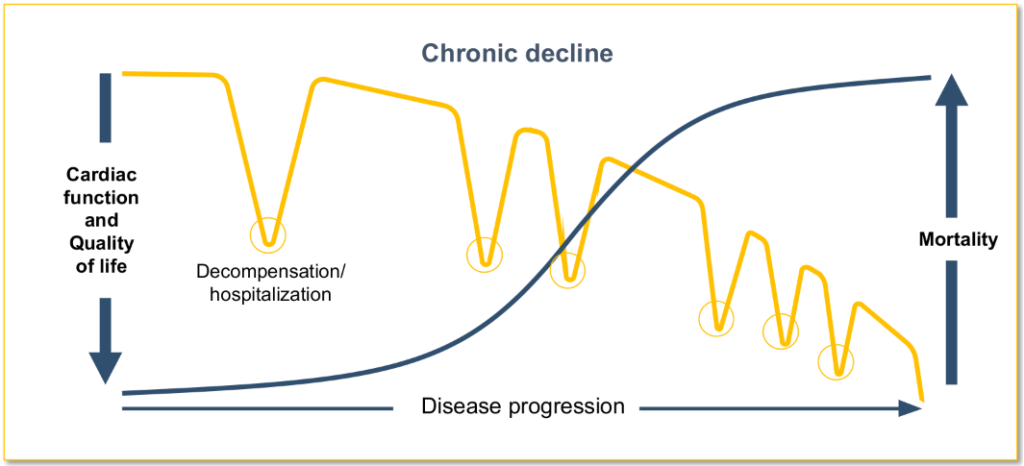Unfortunately, heart failure is a condition that carries a poor prognosis. This means that patients who suffer from this condition do not have a long time to live.
There have been numerous advances made in the field of heart failure over the years. These medications and treatments are aimed at improving the quality of life, reducing the chances of getting hospitalized, and extending the life of the patient for as long as possible.
As per clinical studies, individuals who are diagnosed with heart failure have a 30 to 40% chance of not surviving beyond a year. This number increases to around 75% within five years.
As cardiologists, we can often tell when a patient is worsening and is unlikely to survive very long once they have developed heart failure. However, in the early stages, it can be quite a difficult thing to do.
This is because when treatments are started for patients with new onset heart failure, their bodies can respond in an odd manner, and they may suddenly worsen after demonstrating an early period of improvement.
Not only that, but people with heart failure usually have a weak immune system and can’t fight off infections or other illnesses as well. This makes it even more difficult to manage if they have treatment that is needed to manage another condition at the same time they are being treated for advanced heart failure.

The image above shows how people with heart failure normally progress once they have been diagnosed with the condition.
As you can see, in the early stage of diagnosis, the patients have a dip in their health once they have been hospitalized and recover only partly, not reaching the stage that they were at before. This worsening is seen with every subsequent hospital admission and the overall health of the patient can decline as time passes.
You will know if you have read my previous articles that heart failure is classified according to symptoms in the New York Heart Association classification. Individuals who fall into class IV have a 30 to 70% annual mortality rate. This means that around 3 to 7 out of 10 individuals do not survive beyond one year.
Remember that while these numbers appear to be quite scary, with good medical treatment, patients can have a very good quality of life and carry on for numerous years. Support from family becomes an essential part of caring for heart failure patients.
- Understanding Iron Deficiency Anemia: A Guide for Patients - May 31, 2025
- CT Coronary Calcium Score: A Guide for Patients - January 7, 2024
- Gastric Antral Vascular Ectasia (GAVE) – Causes, Diagnosis, and Treatment - August 5, 2023

